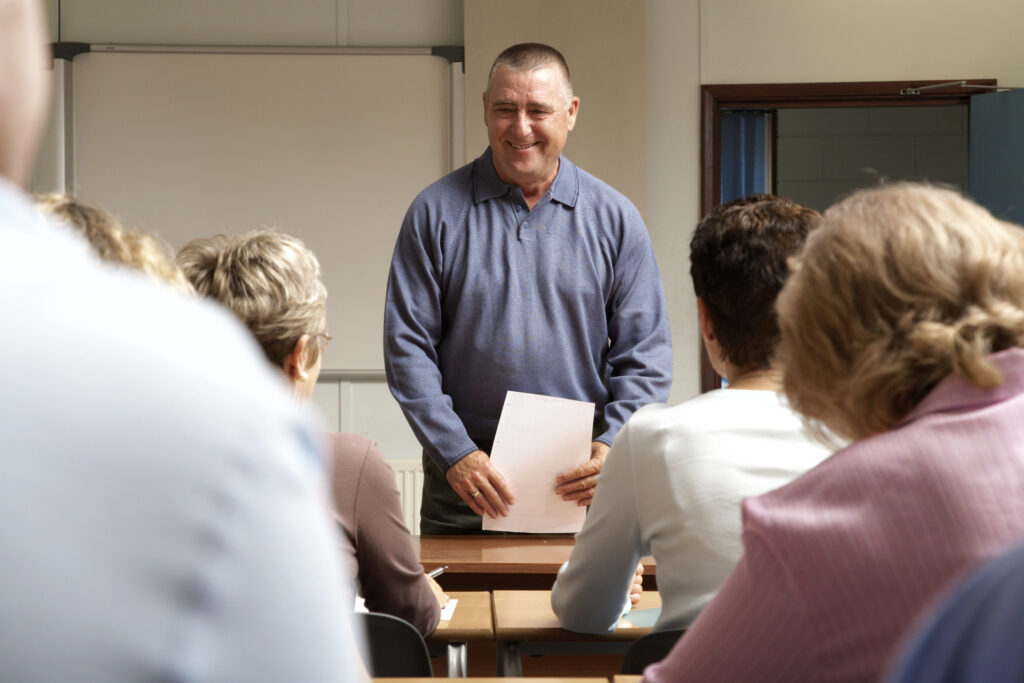A Closer Look: Angela Powers
director, Greenlee School of Journalism and Communication

Angela Powers took over as director of the Greenlee School of Journalism and Communication at Iowa State University on July 1.
She’s already working on a big seminar to be held April 6. She’s looking to remodel part of Hamilton Hall, headquarters of ISU’s journalism building. She is reaching out to alums.
Before this, she ran the A.Q. Miller School of Journalism and Mass Communication at Kansas State University from 2004 to 2012 before returning to teaching. She made a name for herself forging partnerships across various media, improving students’ international opportunities and increasing diversity. She won the 2015 national Barry Sherman Teaching Award in Media Management and Economics, which recognizes excellence and innovation in the teaching of media management, economics or entrepreneurship.
Powers has researched the rapid changes in media, along with family-owned news outlets, the role of information technology in organizational change and other topics. She’s traveled as a scholar and consultant to Egypt, Sweden, Jamaica and Lithuania and has been a leader in the Association for Education in Journalism and Mass Communications.
She worked as a television journalist for NBC and CBS affiliates in Illinois.
Powers grew up riding horses in central Illinois, the oldest of six children. She has more than a casual affinity for Iowa because her father was a conductor for the Santa Fe Railway and his routes crossed Iowa. Her grandfather was studying at Iowa State University when he was drafted for service in World War I.
We asked Powers about her new position at one of the nation’s oldest journalism schools, at a time when the business changes by the day.
What attracted you to this position?
It just felt like a position that was made for me. I had had eight years of experience at Kansas State University at the (A.Q. Miller School of Journalism and Mass Communications). When I visited (Greenlee School of Journalism and Communication), I was really impressed by the dedication of the faculty to the students, not only our faculty, but the other faculty and the administration at Iowa State.
It was attractive to me because it is what I love doing in terms of being journalism- and media-oriented. We’re a strong, accredited program with incredible students who are getting jobs in the field. We have a world-class faculty. We have a placement rate of 95 percent, partly because we have one of the strongest internships in the country, including a partnership with Meredith (Corp.). We are growing. It’s a very special environment. There was just no question (she would take the job).
Do you have new programs?
We’re hosting a summit next spring, and it’s for business community media in particular, but anyone who is interested in storytelling, social media and fake news (may be interested). We are bringing in speakers from all over.
What are your priorities?
How do we put our students first? How do we empower our educators? How do we enrich our learning environment? How do we drive engagement and innovation?
The summit will heighten awareness of our school. It will focus on a major issue of the day. It will bring in experts from around the country for a day-long discussion to try to address some particular issue. It’s mainly geared toward professionals. It’s brand new.
We are also working on a plan to create an intense, very visible social media creativity lab that will allow our students to have the latest in software and artificial intelligence reporting facilities.
We’re always looking for ways to bring in speakers, to engage our alums. My advisory council are professionals from all over the country, so that is a way to bring in expertise. They pay their own way to come in to help. They interview students. We have a Futures Forum that happens once a year, and we bring someone in to address an issue.
Is there discussion of replacing Hamilton Hall?
That would be the best thing. To get a completely new building I think is going to be difficult in the economic environment of the state. I think that without a major donor specifically for a capital project like that, it would be difficult. Our building has improved significantly. We do believe it’s within a reasonable estimate that we can do some major renovations in the basement. There is pretty good lighting and windows in some of those areas. Facilities and planning came over to look at the space available for the social media lab.
Did you hesitate at all to run a department that teaches journalism in an era of so much change?
Never. Not once. I am both a professional and a researcher. My area of research expertise has been related to the changing media environment. One thing that I know is that media has been around forever. And that it has evolved and survived and adapted. I see what we are in now as an opportunity. Our students are learning skills that are necessary for democracies. We’re almost in a new Watergate era, with a need to work out how we analyze the information and get the information out to citizens who need to know.
Our students go into many areas that aren’t traditionally related to newspapers and television, but I think we have one of the best majors on campus.
How are your students divided among the various fields?
A third is news editorial journalism, a third is public relations and a third advertising.
You are meeting with students once a month. What is that about?
We are inviting students inside and outside of the department to tell us what they are thinking about. What do they like? What could we be doing better? I want to get to know the students. The last thing I want to be is a director where nobody knows what a director is or does.
What makes you tick?
I am an opportunist. I am looking at what the opportunities are for us to become a stronger, dynamic program that helps the lives of our students and helps them to be successful. If we have successful faculty then our students are going to be successful.
I believe in working together to develop a plan. I am a collaborator. It’s fun here because I have such a good group of faculty members who really put students first, more than in any environment where I’ve worked so far. That is so impressive.
You seem driven. Are you the type of person who can’t wait to get to work in the morning?
I am. And I love the job.









